As responsible cat owners, we must provide our feline companions with the best care possible. Cats are beloved members of our families, and they deserve to live happy, healthy lives. However, there are some common mistakes that cat owners often make without realizing the potential harm they can cause to their furry friends.
Mistakes Cat Owners Should Never Make
In this comprehensive guide, we will highlight these dangerous mistakes and provide you with valuable insights on how to avoid them. Let’s ensure your cat’s well-being by steering clear of these pitfalls.
1. Neglecting Regular Veterinary Check-ups

One of the most critical mistakes a cat owner can make is neglecting regular veterinary check-ups. Cats, like any other pets, require routine medical care to stay healthy. Skipping these check-ups can lead to undiagnosed health issues that may become more severe over time. Ensure your cat’s well-being by scheduling regular visits to the veterinarian, even if your cat appears to be in good health.
2. Inadequate Cat Nutrition
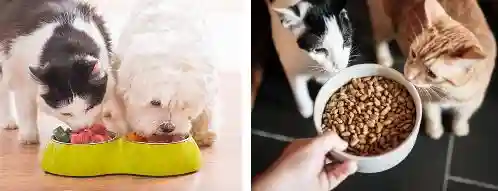
Choosing the right food for your cat is paramount to their overall health. Many cat owners make the mistake of feeding their pets low-quality, generic cat food. To ensure your cat gets the necessary nutrients, opt for high-quality cat food that meets their specific dietary requirements. Consult with your veterinarian to determine the best diet plan for your feline friend.
3. Ignoring Cat Dental Care
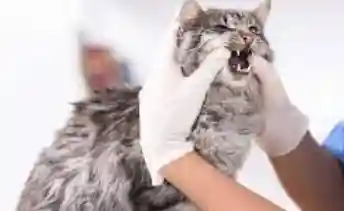
Ignoring cat dental care is indeed a significant oversight that can lead to serious health issues for your feline friend. Dental problems can lead to various health issues, including heart and kidney disease. Make it a habit to brush your cat’s teeth regularly and provide dental treats or toys to promote oral hygiene. Here are some consequences of neglecting your cat’s dental health:
Chronic Dental Disease: This can lead to oral cancer if left untreated.
Expensive Vet Bills: Prevention is key, and ignoring dental care can result in high costs down the line.
Stomatitis: A painful condition affecting the mouth, which can be difficult to treat and manage.
Organ Damage: Poor dental hygiene can lead to infections that affect the heart, kidneys, and liver.
Tooth Decay and Loss: This can cause significant pain and affect the cat’s ability to eat properly.
To prevent these issues, regular dental check-ups with a veterinarian, daily tooth brushing, and providing dental health diets or treats can be beneficial. Always consult with your vet for the best dental care practices for your cat. Remember, a healthy mouth contributes to overall health and well-being.
4. Lack of Environmental Enrichment
Cats are curious and playful creatures. Failing to provide them with adequate mental and physical stimulation can lead to boredom and behavioral problems. Invest in toys, scratching posts, and interactive playtime to keep your cat mentally and physically engaged.
5. Neglecting Litter Box Hygiene
Maintaining a clean litter box is essential for your cat’s comfort and health. Cats are particular about their litter boxes, and a dirty one can lead to stress and inappropriate elimination. Regularly scoop and clean the litter box to ensure your cat has a sanitary place to do their business.
6. Not Spaying or Neutering
Allowing your cat to reproduce without responsible breeding can contribute to the problem of overpopulation. Spaying or neutering your cat is not only a responsible choice but also helps prevent certain health issues and undesirable behaviors.
7. Overlooking Cat Parasite Prevention

Parasites like fleas, ticks, and worms can wreak havoc on your cat’s health. Ensure you follow a regular parasite prevention regimen recommended by your veterinarian to keep these pests at bay.
8. Not Providing Shelter
For outdoor cats, not providing adequate shelter is a significant mistake. Exposure to harsh weather conditions can lead to illness and discomfort. Ensure your outdoor cat has a safe and warm shelter to seek refuge when needed.
9. Removing the Claws of an Outdoor Cat
Removing the claws of an outdoor cat is not only cruel but also leaves them defenseless. Cats rely on their claws for protection and climbing. Instead of declawing, consider alternatives like providing scratching posts to keep their claws in check.
10. Leaving Food Out
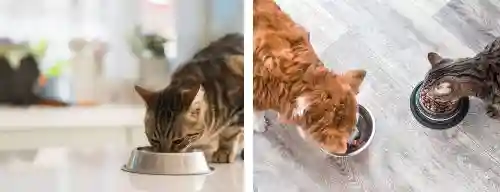
Leaving food out for cats, especially when it comes to wet food, is a common mistake that cat owners should avoid. Here’s why:
Risk of Bacterial Growth: Wet food should not be left out for more than four hours due to the risk of bacteria development. After this time, it’s best to discard the old food and clean the bowl thoroughly before refilling with fresh food.
Overeating and Obesity: Free feeding, or leaving dry food out all the time, can lead to overeating and obesity in cats. It’s difficult to control portions and monitor food intake, which is crucial for maintaining a healthy weight.
Freshness: Even dry food, which can be left out longer, should be thrown out if it hasn’t been eaten within a day to maintain its freshness and appeal.
Instead, consider these feeding strategies:
Meal Feeding: Providing food at specific meal times allows for close monitoring of food intake and can prevent overeating.
Scheduled Feeding: Offering meals at set times during the day helps with portion control and enables you to monitor your cat’s eating habits more effectively.
Always ensure that fresh water is available at all times for your cat, and consult with your veterinarian to decide on the best feeding regimen for your feline friend’s health and lifestyle.
11. Sticking with Cat Dry Food
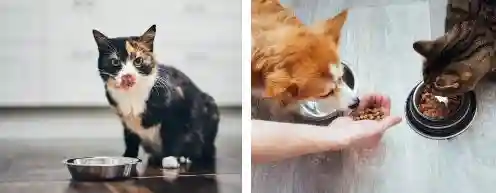
While dry cat food is convenient, an exclusive diet of kibble can lead to dehydration and urinary issues. Include wet food in your cat’s diet to ensure they stay adequately hydrated.
12. Serving High-Carb Food
Serving high-carb food to cats is indeed one of the mistakes that cat owners should avoid. Cats are obligate carnivores, which means their natural diet consists mostly of protein. High-carb diets can lead to obesity and diabetes in cats. Here are some key points to consider:
Overweight and Obesity: A diet high in carbohydrates can contribute to weight gain in cats. Over 60% of American cats are overweight or obese, which can lead to serious health issues.
Carb Temptation: Just like humans, cats can be tempted to overeat when fed high-carb foods. It’s not filling and can lead to excessive calorie intake.
Wet Food vs. Dry Food: Wet food is generally recommended over dry food because it has better water content, which is beneficial for a cat’s kidneys.
Consult Your Vet: Always consult with your veterinarian to determine the best diet for your cat, considering their specific needs and health status.
Remember, each cat is unique, and their nutritional needs can vary. It’s essential to provide a balanced diet that meets all their dietary requirements for a healthy life.
13. Making Your Cat an Unbalanced Meal
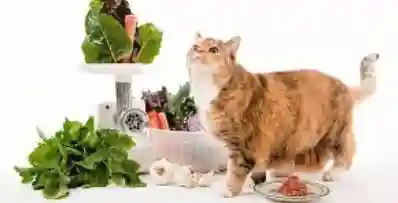
Homemade cat meals can be tricky to get right. Ensure that any homemade meals are nutritionally balanced and meet all your cat’s dietary needs.
14. Skipping Vaccinations for Indoor Cats
Even indoor cats are at risk of certain diseases. Skipping vaccinations can leave your indoor cat vulnerable to illnesses that can be easily prevented.
When it comes to vaccinations for indoor cats, there’s no one-size-fits-all answer. It’s important to consider the individual risk factors of your cat. Generally, the American Association of Feline Practitioners recommends a full series of vaccinations for kittens against diseases like panleukopenia, feline herpes type 1, calicivirus, feline leukemia, and rabies, followed by a booster a year later.
For truly indoor cats with no contact with indoor-outdoor cats, the current recommendation is to continue receiving boosters for panleukopenia, feline herpes type 1, and calicivirus every 3 years, as these diseases can spread without direct cat-to-cat contact. Rabies vaccination should comply with local legal requirements, and even if not mandatory, it may be recommended in certain situations, such as potential wildlife exposure inside your home or international travel plans with your cat.
Before deciding to skip any vaccinations, discuss with the veterinarian about your cat’s specific situation. They can help you weigh the risks and benefits and decide on the best vaccination schedule for your cat’s health and lifestyle. Remember, even indoor cats can be at risk for certain diseases, so it’s always best to consult with a professional.
15. Ignoring Behavioral Changes
Cats communicate through their behavior. If you notice any sudden changes in your cat’s behavior, it could be a sign of an underlying health issue or stress. Don’t ignore these changes; consult with your veterinarian to address any concerns.
Conclusion
Being a responsible cat owner means avoiding these dangerous mistakes that can compromise your cat’s health and happiness. Regular veterinary care, proper nutrition, dental hygiene, environmental enrichment, litter box maintenance, spaying or neutering, parasite prevention, providing shelter, and paying attention to behavioral changes are all crucial aspects of responsible cat ownership. By avoiding these pitfalls and providing the best care possible, you can ensure that your feline companion enjoys a long, healthy, and happy life.
Frequently Asked Questions (FAQs) About Responsible Cat Ownership
How often should I take my cat to the veterinarian for a check-up?
It’s recommended to schedule a veterinary check-up at least once a year, even if your cat appears healthy.
Is it okay to feed my cat dry food exclusively?
While dry food is convenient, it’s best to include wet food in their diet to prevent dehydration and urinary issues.
Can I remove my outdoor cat’s claws?
No, removing a cat’s claws is cruel and should never be done. Provide alternatives like scratching posts instead.
How can I protect my cat against fleas and ticks?
Consult your veterinarian for safe and effective flea and tick prevention products suitable for your cat.
Why is it important to pay attention to behavioral changes in my cat?
Behavioral changes can be signs of underlying health issues or stress. Addressing them early can prevent more significant problems.






